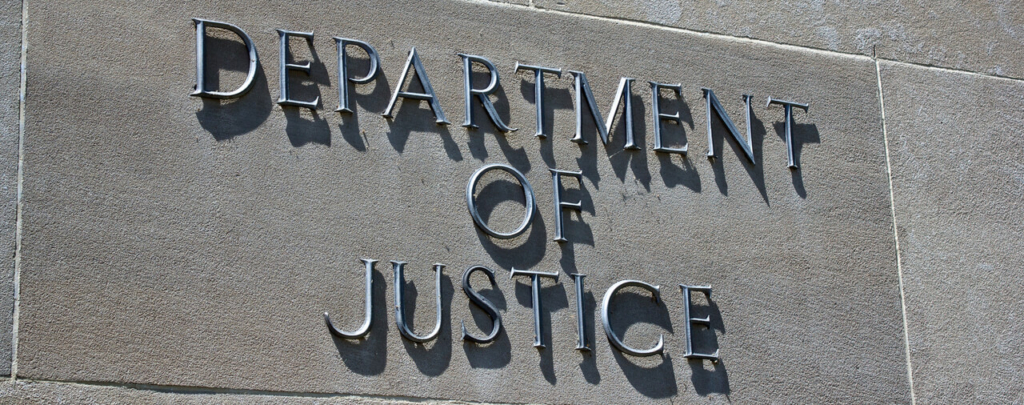- Introduction: Martinez-De Ryan v. Sessions
- Factual and Procedural History
- Ninth Circuit Rejects Vagueness Challenge to Moral Turpitude Statute
- Conclusion
Introduction: Martinez-De Ryan v. Sessions
On July 17, 2018, the United States Court of Appeals for the Ninth Circuit issued a published decision in Martinez-De Ryan v. Sessions, —- F.3d —— (9th Cir. 2018) [PDF version]. The Court held that the provision of the Immigration and Nationality Act (INA) rendering an individual who committed a crime involving moral turpitude ineligible for cancellation of removal is not unconstitutionally vague. Although this decision is in line with long-standing Supreme Court and Ninth Circuit precedent on the issue, the decision is noteworthy in light of the Supreme Court of the United States’ recent decision in Sessions v. Dimaya, 138 S.Ct. 1204 (2018) [PDF version] [see blog], where it struck down as unconstitutionally vague the incorporation of 18 U.S.C. 16(b) (the “residual clause” of the federal criminal code’s definition of “crime of violence”) into the INA.
In this article, we will briefly examine the Ninth Circuit’s decision in Martinez-De Ryan along with related issues.
Factual and Procedural History
The petitioner, Rocio Aurora Martinez-de Ryan, was a native and citizen of Mexico. Some time before 1999, the petitioner entered the United States without being inspected or paroled. At some point thereafter, “she provided cash payments to an employee at the Nevada Department of Motor Vehicles to influence and reward the employee for issuing identification documents to non-citizens illegally present in the United States.” The petitioner subsequently pled guilty to one count of bribery in violation of 18 U.S.C. 666(a)(2). She faced a potential maximum penalty of 10 years’ imprisonment for the conviction.
Subsequent to her conviction, the Department of Homeland Security (DHS) issued a Notice to Appear to the petitioner, charging her with inadmissibility under section 212(a)(2)(A)(i) of the INA for having been convicted of a crime involving moral turpitude.
The petitioner conceded that she was inadmissible, but she sought cancellation of removal. The immigration judge ruled that the petitioner’s bribery conviction was a crime involving moral turpitude, which is a bar to cancellation of removal. The respondent appealed to the Board of Immigration Appeals (BIA), but the Board affirmed the immigration judge’s decision. The respondent then appealed to the Ninth Circuit, arguing that the INA’s crime involving moral turpitude statute is unconstitutionally vague.
Ninth Circuit Rejects Vagueness Challenge to Moral Turpitude Statute
The Ninth Circuit reviewed the constitutional question presented by the petitioner de novo (from the beginning).
The petitioner argued that the phrase “moral turpitude,” as it appears in the INA, is unconstitutionally vague. The decision addressed existing precedent on the issue.
In Jordan v. De George, 341 U.S. 223 (1951) [PDF version], the Supreme Court considered a similar vagueness challenge to the phrase “crime of moral turpitude.” In light of what the Court described as the “grave nature of deportation,” it analyzed the relevant statute under the void-for-vagueness doctrine. Id. at 231. The Court ultimately concluded that the phrase “crime of moral turpitude” was not unconstitutionally vague. Id. at 229-32. Six years later, the Ninth Circuit itself followed Jordan in its published decision in Tseung Chu v. Cornell, 247 F.2d 929 (9th Cir. 1957) [PDF version], concluding that the phrase “crime involving moral turpitude,” which is used in the current laws, was not unconstitutionally vague. In Tseung Chu, the Ninth Circuit applied the void-for-vagueness doctrine.
In response to the petitioner’s arguments, the government first argued that the void-for-vagueness doctrine is not applicable to any ground of inadmissibility, meaning that the Ninth Circuit would not even be able to consider the question of whether the phrase “crime involving moral turpitude” in section 212(a)(2)(A)(i) was unconstitutionally vague. In making this argument, the government relied on the Supreme Court decision in Boutilier v. INS, 387 U.S. 118 (1967) [PDF version]. Under the government’s interpretation of Boutilier, the Ninth Circuit’s decision in Tseung Chu would have been irreconcilable due to the fact that it had applied the void-for-vagueness doctrine to an inadmissibility statute. In the instant decision, the Ninth Circuit explained that Boutilier involved an alien who was being deported for having had a “psychopathic personality” at the time he entered the United States. Id. at 123-24. The Boutilier Court stated that the “constitutional requirement of fair warning has no applicability to standards … for admission of aliens to the United States.” Id. at 123. However, the Ninth Circuit noted that the Boutilier Court also ruled that the pivotal phrase in the applicable inadmissibility statute was clear. Id. at 123-24. The Ninth Circuit concluded that the Boutilier decision was sufficiently distinguishable from Tseung Chu for the conclusions to not be “clearly irreconcilable.”
The Ninth Circuit concluded that Boutilier did not preclude consideration of the petitioner’s constitutional arguments.
First, the Ninth Circuit distinguished the facts in Boutilier from the facts in the instant case. The issue in Boutilier was the status or condition whereas the issue in Martinez-De Ryan was the petitioner’s criminal act. Furthermore, Boutilier dealt with an alien’s status or condition at the time of entry whereas Martinez-De Ryan concerned a criminal act after entry.
Second, the Ninth Circuit was not persuaded by the government’s argument that Boutilier specifically prevented consideration of the question of whether the phrase “crime of moral turpitude” can be reviewed in the inadmissibility context. It noted that the United States Court of Appeals for the Seventh Circuit concluded that it could analyze on the merits a void-for-vagueness challenge to the phrase “moral turpitude” in the inadmissibility context. In both Lagunas-Salgado v. Holder, 584 F.3d 707, 710-11 (7th Cir. 2009) [PDF version], and Ali v. Mukasey, 521 F.3d 737, 739 (7th Cir. 2008) [PDF version], the Seventh Circuit concluded that the phrase “moral turpitude” in section 212(a)(2)(A)(i) was not unconstitutionally void for vagueness.
Finally, the Ninth Circuit was left to consider whether it should be guided by its precedent from Tseung Chu and the Supreme Court decision in Jordan. To this effect, it addressed the recent Supreme Court decision in Sessions v. Dimaya. In Dimaya, the Supreme Court concluded that the residual clause of the federal criminal definition of “crime of violence” in 18 U.S.C. 16(b), as incorporated into the INA at section 101(a)(43)(F), was unconstitutionally void for vagueness. This decision extended into the immigration context a Supreme Court decision applied to a criminal residual clause in Johnson v. United States, 135 S.Ct. 2551 (2015). The Ninth Circuit concluded that Dimaya did not “eviscerate” its holding in Tseung Chu such that it needed to be overruled. It found that “Johnson and Dimaya interpret statutory ‘residual clauses’ whose wording does not include ‘moral turpitude and which are not tethered to recognized common law principles.” Having distinguished Johnson and Dimaya, the Ninth Circuit panel concluded that it was bound to follow the Supreme Court decision in Jordan “even if later Supreme Court cases cast some doubt on its general reasoning.”
In a final footnote, the Ninth Circuit noted that three other circuits have held, post-Johnson, that Jordan remains good law and that it necessitates the conclusion that the phrase “crime involving moral turpitude” is not unconstitutionally vague. The Ninth Circuit listed the following decisions:
Moreno v. Att’y General, 887 F.3d 160, 165-66 (3d Cir. 2018) [PDF version];
Boggala v. Sessions, 866 F.3d 563, 569-70 (4th Cir. 2017) [PDF version]; and
Dominguez-Pulido v. Lynch, 821 F.3d 837, 842-43 (7th Cir. 2016) [PDF version].
Conclusion
The Supreme Court’s decisions in Johnson and Dimaya arguably raise questions as to whether its prior decision in Jordan remains on solid-footing. However, unless the Supreme Court itself decides to consider the issue of whether the phrase “crime involving moral turpitude” is unconstitutionally vague, it is likely that the circuit courts that have not yet considered the question will hold, similarly to the Third, Fourth, Seventh, and now Ninth, that Jordan remains good law. Nevertheless, the issue is worth watching closely going forward, and it is possible that if a different circuit court reaches a different conclusion on the issue, the Supreme Court may be more likely to agree to hear a void-for-vagueness challenge to the phrase “crime involving moral turpitude.”
If an alien is facing immigration penalties stemming from crime involving moral turpitude, he or she should consult with an experienced immigration attorney immediately for a full case-specific consultation. We discuss crimes involving moral turpitude and related issues in our website’s ever-growing section on Criminal Aliens [see category].
We will update the site with more information on these issues, the Dimaya decision, and other related issues in the coming weeks and months.





